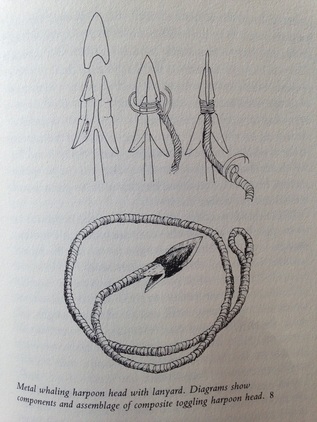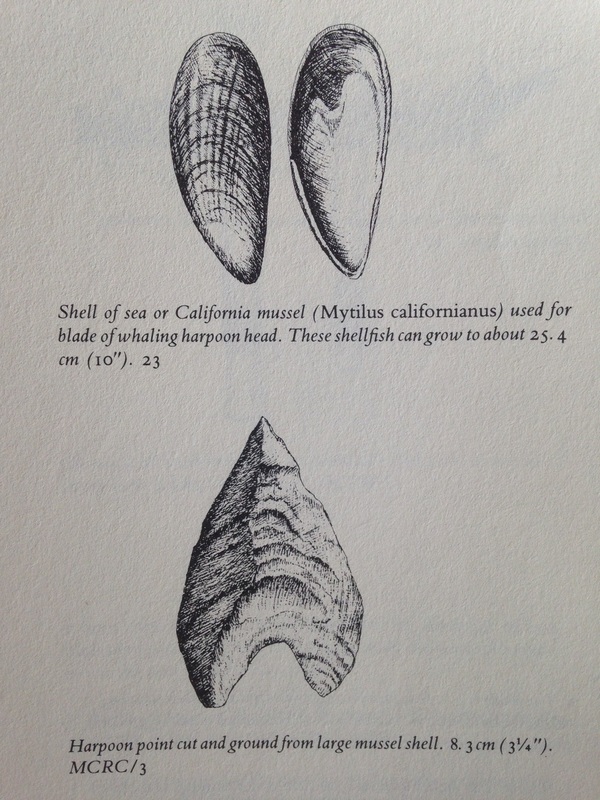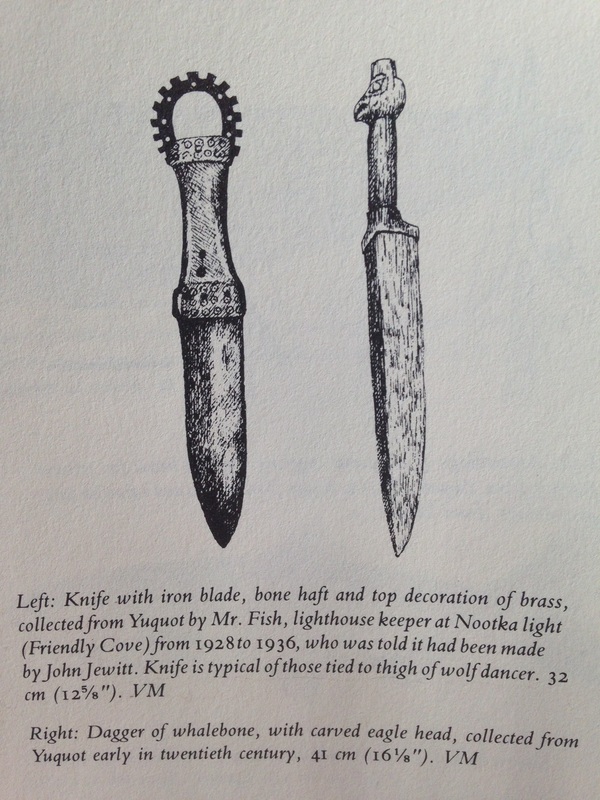|
During the next year of captivity, John managed to put aside his fear and misery, and had the presence of mind to observe and record the ways of the Nootka people. With the intellectual curiosity of an anthropologist, he described fishing and hunting methods, food preparation, clothing, housing, and social and seasonal customs. He learned as well, through his metalwork, making daggers, fish hooks and other metal implements according to the orders of Maquinna. Creating these tools as well as decorative jewelry-like trinkets for the general enjoyment of the people, offered one method of establishing common ground. In fact, John was responsible for introducing Maquinna to the use of steel harpoon heads in place of the shell heads which were constantly breaking. Immediately upon switching, Maquinna harpooned the first whale of the season. Needless to say, this improved relations between the king and his slave considerably. Beyond that, John learned the language. Like Maquinna who understood the importance of learning English, John recognized that language was a powerful tool he could use to his advantage, and that its nuances told much about the culture he inhabited. "The king finding that I was desirous of learning their language, was much delighted, and took great pleasure in conversing with me. On one of these occasions, he explained to me his reasons for cutting off our ship, saying that he bore no ill will to my countrymen, but that he had been several times treated very ill by them." Here John takes a noticeable pause in his narrative to make a philosophical point about diplomacy and inter-cultural relations. He is careful not to side with the Indians but at the same time, he tries to convey their side of the story. "For though they are a thievish race," (he starts out rather undiplomatically), "yet I have no doubt that many of the melancholy disasters have principally arisen from the imprudent conduct of some of the captains and crews of the ships employed in this trade, in exasperating them by insulting, plundering, and even killing them on slight grounds. This as nothing is more sacred with a savage than the principle of revenge..." Much like today's conflicts around the world, the animosities between Indians and Europeans mostly came about due to lack of communication between very different cultures, that combined with a strong desire for revenge. The young John R. very perceptively suggests that a certain amount of guarded civility would go a long way toward improving conditions for trade and profit to the benefit of all parties.
0 Comments
Leave a Reply. |
Archives
July 2018
Links to Related Sites Lincolnshire Wildlife Trust Rod Collins - Lincolnshire Thro' History, Life, Lens and Words The Old Palace Lincoln - Elegant Bed and Breakfast National Portrait Gallery - London College of Arms The Jewett Family of America History and Geneaology of the Jewitts of America Jowett Variations Marvinas Bay Lodge First Peoples of Canada |
Jewitt-Pennock-Foster and Cool-VanPelt Family History Copyright © 2015



 RSS Feed
RSS Feed